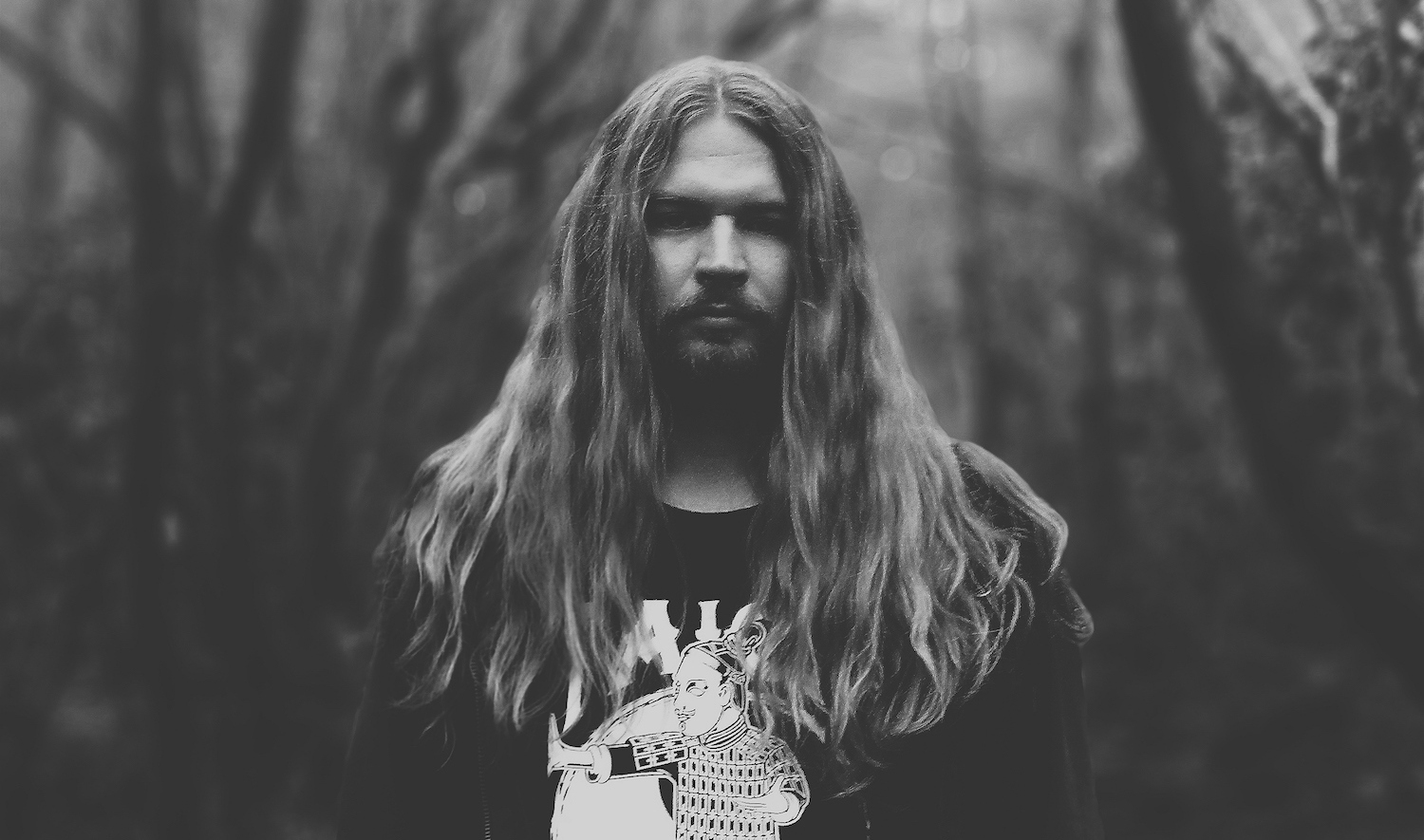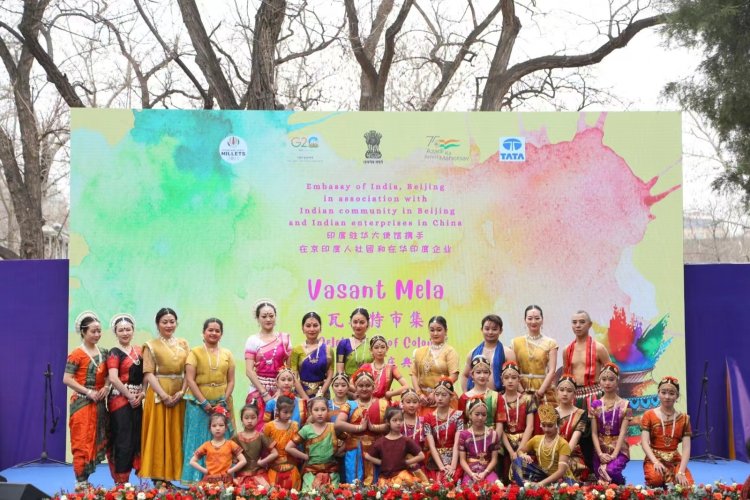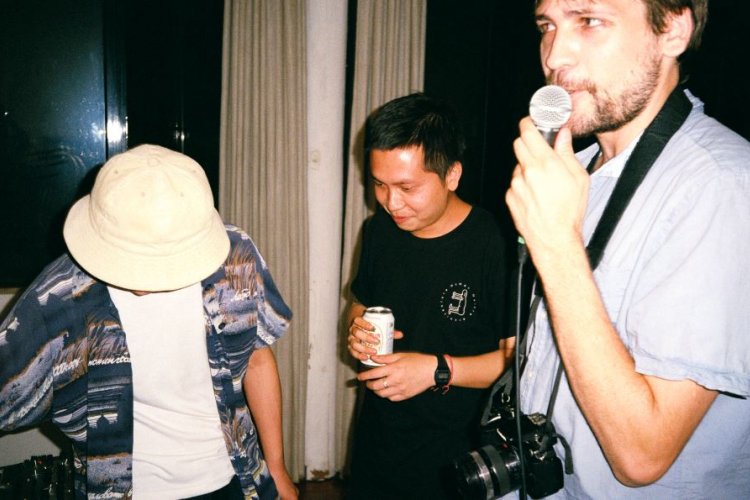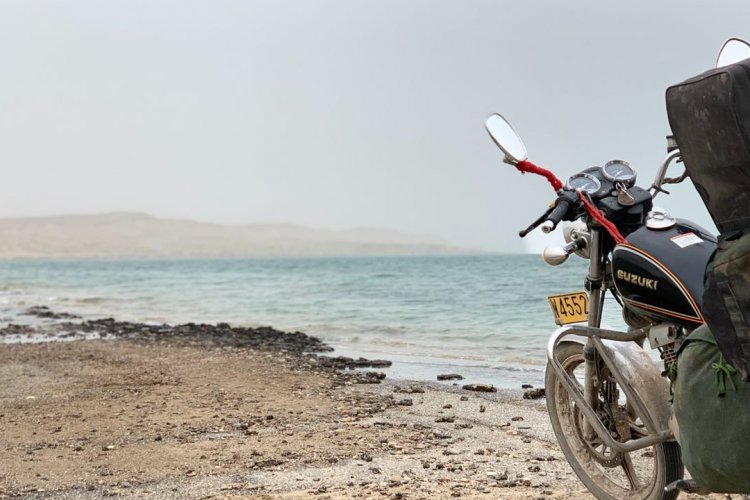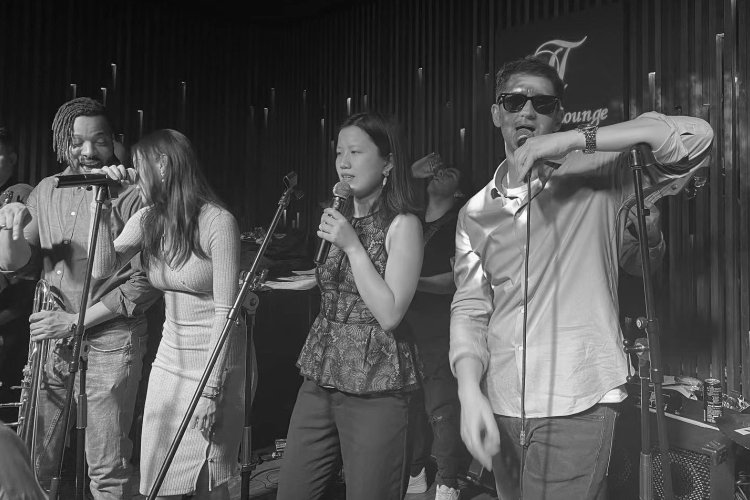Slip Into the Warm Meditative Drones of Pool of Light This Weekend
Looking to explore your spiritual side? Or simply drone out and unwind? Then you might want to get to know Pool of Light, who is slowly becoming one of China's ambient scene’s go-to artists when it comes to finding peace of mind through music.
The Siberia-born, Shenyang-based multi-instrumentalist Anton Bogdanov utilizes guitars, bows, zhongruan, drums, vocal loops, and other tools to lead the listener on a pilgrimage of trancelike meditations flush with improvisational cosmic and folk-drone elements. It’s rich in its potency, atmospheric to the fullest extent, and like a mist that slowly blankets a mountainside village at dusk, there’s a tangible naturalism in the way the music swallows you whole, seeps into your pores, and arrests your senses.
Since his emergence on the scene back in 2017, the artist, whose sound calls to mind everyone from Barn Owl to Kawabata Makoto, has put out a variety of releases across multiple underground labels (Pyramid Blood Recordings out of Canada and ΠΑΝΘΕΟΝ Records out of Russia, just to name a few). Those works have helped him join the ranks of other ambient musicians in China, including Ruining and Xie Yugang (of Wang Wen) out of Dalian, who are helping to inject the genre with new life.
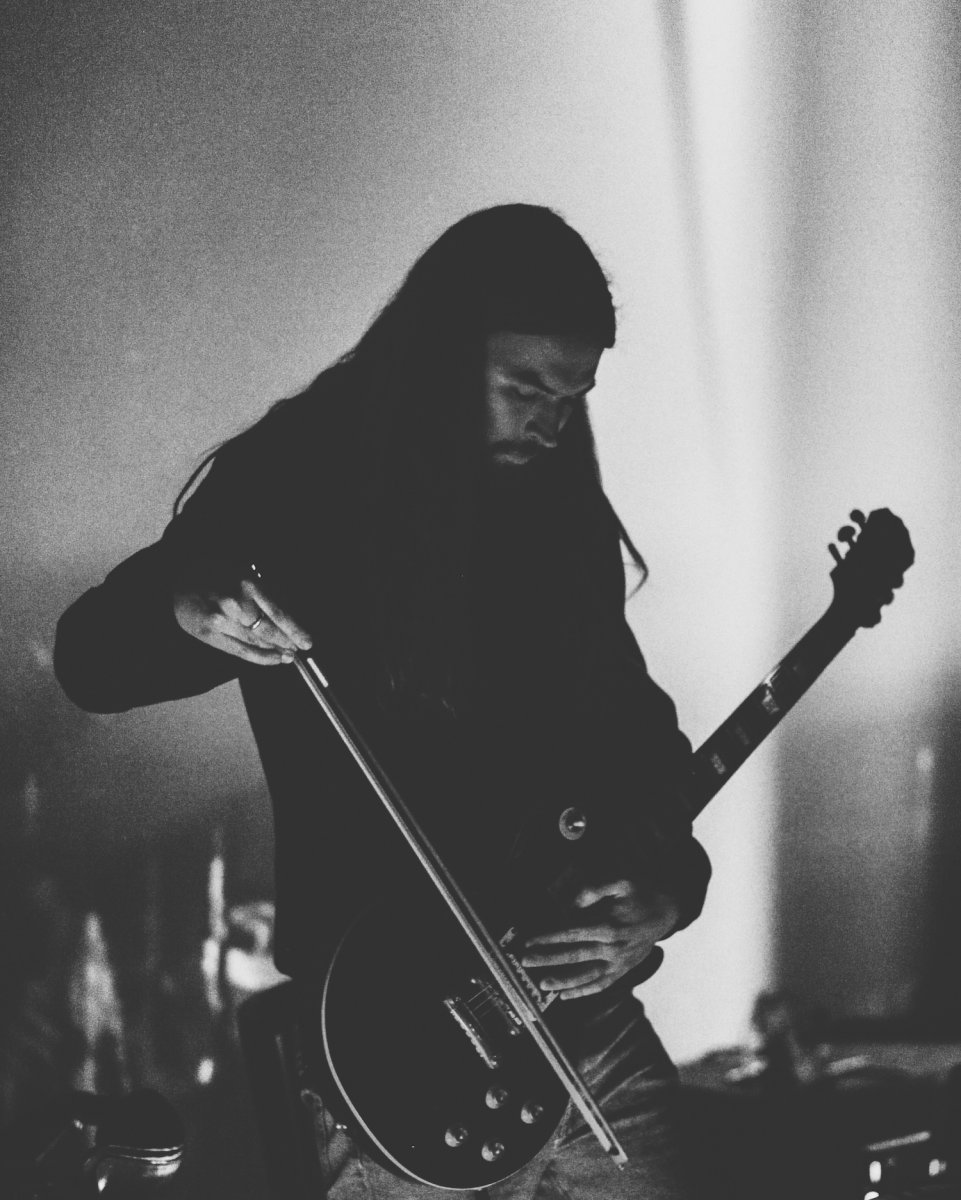
This weekend the artist comes out of the woodwork (of Dongbei) for a special performance courtesy of Beijing-based DIY record label Jingweir and Live Beijing Music at DDC on Friday, Jun 14 alongside two of Beijing’s most distinctive artists in the realm of electronic and experimental: Zafka and Li Jianhong. I shot the artist some questions about his ambient heroes, the therapeutic qualities found in his music, and honing one’s skills in Shenyang.
What’s your musical background? Was it something you were involved in back in Siberia?
I had been composing a lot back in my country, most of it was not released. I also did chiptune music for a short period of time and later played in a post-metal band called 6 Degrees. It was kind of instrumental mixture of post-metal/post-rock – we had two EPs on Bandcamp and two gigs back in Siberia when the whole post-(insert genre) was a thing in Russia in 2011-13. We did not have plans to become big, we just enjoyed playing.
What led you down the path of ambient and drone music? Who are some of your heroes in that world?
Being a guitar player and a metal lover first and foremost, my mind was blown when I discovered drone metal acts like Earth, Nadja, Sunn O))), and many others. You know, all these gigantic infinite riffs, distorted sound, very minimalistic approach, that was new for me. Moreover, about 10 years ago I started to take a shift from heavy music and its sub-genres and found myself diving towards electronic, experimental, and ambient music, where I discovered Brian Eno, Aphex Twin, Harold Budd, the solo efforts of Robert Fripp from King Crimson, etc. It was a really natural shift as I felt a bit tired of structured music and all these boundaries it had, so that’s it.
I tend to listen to early works of American minimalism now – La Monte Young, Terry Riley, Pauline Oliveros. I also find the new wave of Japanese drone/ambient really fascinating – Chihei Hatakeyama, Hakobune, Kenji Kihara, etc. During this past winter, I found myself really enjoying Berlin school electronics – Tangerine Dream and Ash Ra, who also have much in common with the genre.
I can’t fathom how one goes about making ambient music – I imagine one must be very patient? Could you give us a peek into your recording process?
Actually, I believe one of the factors that drives contemporary ambient music is the fact that our post-industrial world is much more complicated and information-driven – there is tons of data for us to consume on a daily basis. I’m a very impulsive person in some ways and feel very insecure about how much information a human needs to process nowadays, so music helps me to find that balance and calm; you can say it is kind of therapeutic experience and it is important that I do it alone as a one-man band, allowing me to focus on myself. After all, I believe the whole one-man-band atmospheric music phenomena we see today is a new of kind of stage in this downward spiral, a reaction to the current state of affairs in music and the world. You can see pretty much everybody has personal projects now, and it is not just due to the internet and affordable software, it is much deeper I think.
I record when I feel like doing it, that's all I guess. There are no rituals or rules on how to organize a good session, one just knows when the music is right, don’t they?
There’s something meditative about your music. What therapeutic qualities do you yourself experience from recording and performing?
As I said before, it helps me to find inner peace and sharpen my focus. I do not pursue any mood or efforts to imitate a mood, otherwise, it will sound fake. You know as it often happens with artists, one does not simply define the concept and mood of music even after playing or recording. I do not concentrate on any mood when I play, I just play and as it is drone music, it is very minimalistic yet constantly evolving – this is an interesting point. You don't feel any mood at least before you find out that something is already going on in your loops. Very often after that, it is not you who leads the music, but the music that leads you. That's why I'm now trying to play spontaneous all-improvised sets with no ability to edit anything. All things and sudden mood changes happen this way. It does have that meditation element as I'm into those aesthetics, but it is not just for the sake of aesthetics. I remember someone said that my music is a balance between tranquility and anxiety, very unstable, and I believe this is true in some ways. But in the end, it's really joyful to be in that transcendent state. I know there are some artists who take music therapy courses (Salvaticus Selvatico from the UK for example), and who do it with a full understanding of what impact it has on listener, but I'm not aware of the impact my music has on others. Maybe it's harmful, so beware!
How did you end up in Shenyang? How much does your environment affect your music?
Well, Shenyang is quite a nice place to stay actually. I like it most of northeastern China. Dalian is also good. Shenyang encompasses most elements of a well-developed city, but it is not as overcrowded as Beijing or Shanghai. There is way much less activity in the music and art scene than in Beijing of course, and to be honest I was have not been aware of anything happening in that field for the last several years. But sometimes being a little bit outside of the center of the world, if I could say so, is very productive. Influence is always great, but you can't help but start to feel that all these gigs, new artists, new albums, and so on is overwhelming, especially now in the era of online music streaming. I don't want to be that Varg Vikernes of ambient music, living on the edge of the world – it's all about balance. I could not imagine how living in a bigger city could affect my music, I mean, it definitely would, and if I move to another place, we'll see how it turns out.
Recently you worked with Dalian musician and fellow ambient artist Ruining – what was it like to perform with him and what did you take away from that experience? Do you hope to collaborate with more Chinese artists in the future?
Our tour was great, I got a great deal of experience from gigging for several days in a row, which is absolutely a must for every musician, I believe. Ruining pays a lot of attention to detail and really cares about sound. Because of him, I was able to see how other great underground acts perform and shared some experiences with them. He was the one to organize most of the things during our journey, so I feel very thankful for his help. Funny thing is, he is very much into plugins and audio interfaces, and I'm more into hardware. Whenever we set up, my stuff was like 3/4 of the table, so he was constantly suggesting me to opt for plugins, laptops, and that kind of gear in the future. But I guess I'll stick to hardware.
Pool of Light will play at DDC this Friday alongside sound artist Zafka and experimental guitarist Li Jianhong. Tickets are RMB 60 advance or RMB 80 on the door.
READ: Taiwanese Band Manic Sheep Talk Global Recognition Ahead of Jun 16's Gig
Images courtesy of Pool of Light

